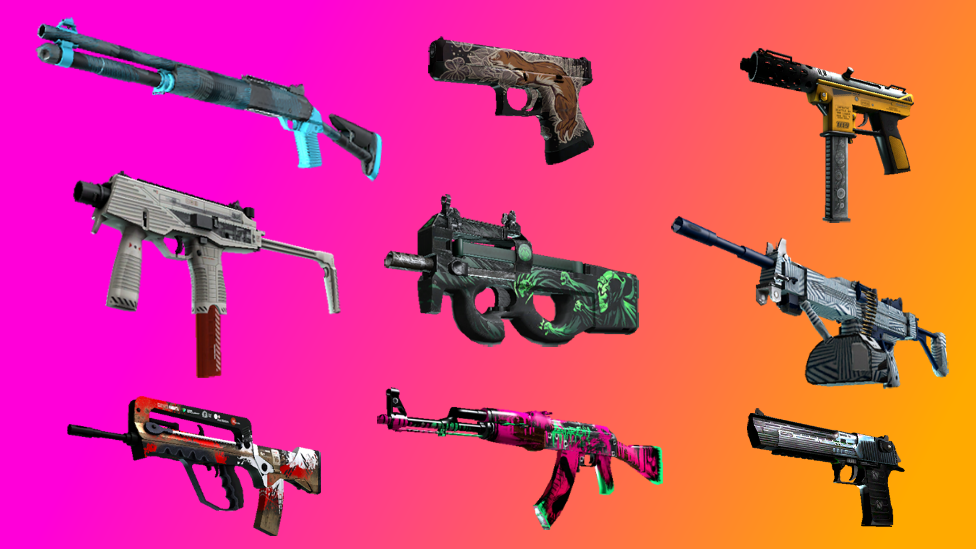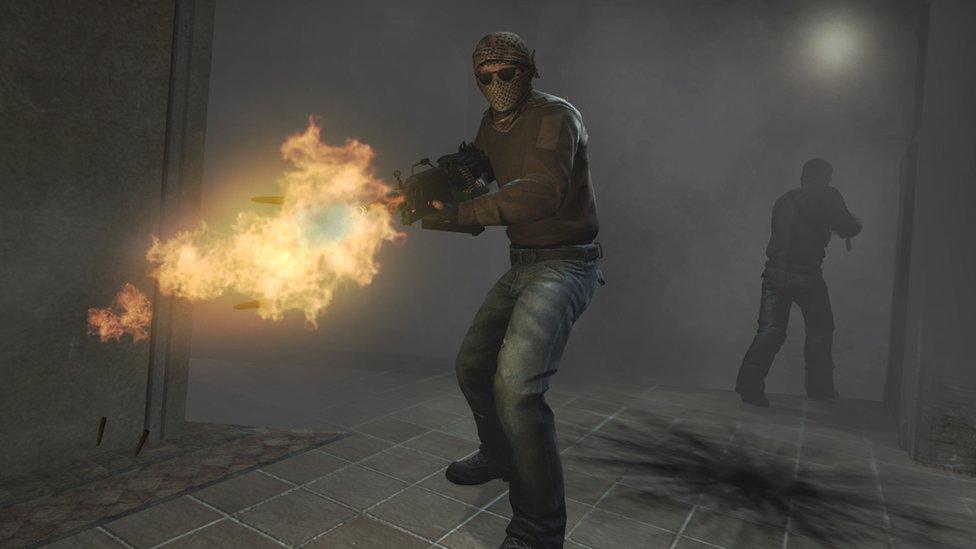Valve ordered to tackle 'skin betting'
- Published

Skins modify the look of a gun
Video game studio Valve has been ordered by the Washington State Gambling Commission (WSGC) to take action on unlicensed betting websites.
So-called skin betting websites let players gamble with virtual items as currency, but items won can often be sold and turned back in to real money.
The sites are not operated by Valve, but incorporate items from its games.
The gambling commission has sent Valve a cease and desist letter, external in an attempt to stamp out the sites.

What is skin betting?
Skins are collectable, virtual items in video games that change the appearance of a weapons - for example, turning a pistol into a golden gun.
Sometimes skins can be earned within a game, but they can also be bought with real money.
Some games also let players trade and sell skins, with rarer examples attracting high prices.
A number of websites let players gamble with their skins for the chance to win more valuable ones.
Since skins won on such a website could theoretically be sold and turned back into real-world money, critics say betting with skins is unlicensed gambling.

Many skin betting websites are connected to Valve game Counter Strike: Global Offensive, although similar operations exist for a number of other titles including EA's Fifa.
In July, Washington-based Valve said it would use "all available remedies" to end skin betting and ordered 23 unofficial websites to cease operations.
It has now asked 40 unofficial websites to end their betting operations connected to its games.
But the WSGC said Valve needed to "stop allowing the transfer of virtual weapons known as 'skins' for gambling activities".
It said Valve's Steam software platform facilitated the activity.
"All third-party gambling sites have Steam accounts and use the Steam platform to conduct their gambling transactions," the WSGC said in a statement.
It has been estimated that the global market in betting on video games is worth as much as £4bn.
In September, the UK gambling commission charged two men with offences under the Gambling Act, in what is believed to be the first prosecution involving betting on video games.
- Published21 July 2016

- Published16 September 2016
